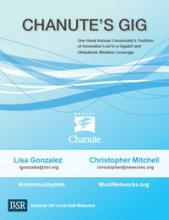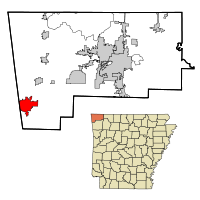Community Broadband Bits 19 - John St. Julien from Lafayette



Several months ago, we wrote this post but it got lost in the system. We think it still worthwhile, so here it is.
The word "cartel" drums up many negative annotations - drug cartels, oil cartels. Never anything positive, such as bunny cartels or chocolate cartels. Harold Feld (of Public Knowledge) explains the emergence of another cartel in My Insanely Long Field Guide To The Verizon/SpectrumCo/Cox Deal, on his Tales of the Sausage Factory blog. This is great tutorial on how the deal came about and what it can mean for the future of broadband.
Rather than chocolate, drugs, oil, or bunnies, the product in question is telecommunications services. At the heart of the cartel are the familiar names: Verizon, Cox, and SpectrumCo. The latter being a consortium of Comcast, Time Warner Cable, and Bright House. All the big hitters in telecom are involved in a way that is veiled, secretive, and not good for competition.
"It's almost as if your companies got in a room together, and you agreed to throw in the towel and stop competing against each other," Sen. Al Franken to representatives from Verizon and the cable companies at the Senate Judiciary Subcommittee on Antitrust, Competition Policy, and Consumer Rights, March 21, 2012.
Feld's investigation begins with the licensing and collecting of spectrum by SpectrumCo but ends with a more practical look at how these big hitters have decided that it is better to join forces than to compete. Side agreements, secretive multi-layered entities, and threaded loopholes keep the FCC at bay. This begins as an article about telecommunications, but quickly expands into an antitrust primer. The most alarming facet of this situation is that the product in question is information.
Joel Kelsey of Free Press testified at that same committee, warning how this deal will compromise access, quality, and affordability to broadband in America and how drive us further behind the rest of the world.
Update:
On August 16, 2012, the Department of Justice announced that it approved the deal with changes. Citing:
David Cameron, city administrator, said the proposal is not so much about dissatisfaction with current providers as it is about finding new revenue for the city. Cameron said revenue from electric services has been a key source of funding for various projects and necessities for the city. That “enterprise” fund is getting smaller, Cameron said, and an alternative funding source is needed. “We have done a good job managing accounts, building a reserve,” Cameron said. “We want to keep building on the programs we have. It takes money and funds to do that.” City officials discussed the issue for the last 18 months and decided to put it to a referendum. Voters will decide the issue May 22.That is a fairly unique reason. Most communities want to build these networks to encourage economic development and other indirect benefits to the community. Given the challenge of building and operating networks, few set a primary goal of boosting city revenue.

If approved by voters, the city plans to spend $8.3 million to install 100 miles of fiber optic cable directly to homes and businesses. The city should be able to repay the debt in 12 years, if things go according to a feasibility study presented to the city’s board of directors in January.
The battle over broadband in Lafayette is part of a growing number of clashes across the USA that pit municipalities against telecom firms for the right to deliver Web access to homes and businesses. More than 150 local governments across the country have built or are planning to build cyber networks, says Christopher Mitchell of the Washington-based Institute for Local Self-Reliance, a non-profit group that advocates community development and local access to technology. Mitchell says those efforts often draw opposition in the form of misinformation campaigns, lawsuits from private providers or unfavorable state laws resulting from telecom lobbying. Nineteen states either ban cities and counties from getting into the broadband business — or make it difficult.Minor quibble: the Institute for Local Self-Reliance (and particularly my work) is not Washington-based. Like the toy in Crackerjack boxes, we cannot have a story about community networks without at least one blatant lie from some cable company employee. No disappointments here:
"Our initial objection was, and remains, that it is an unfair advantage for your competitor to also be your regulator," says Todd Smith, a Cox spokesman. "Many states prohibit government from competing with the private sector."I challenge Todd Smith to name one way in which LUS Fiber regulates Cox. When the local government makes rules that impact either Cox or LUS Fiber, such rules have to be non-disciminatory or they violate state and federal laws. If incumbents think the community is violating any laws, we know that they know how to hire lawyers and file lawsuits.
A common misconception is that local governments award exclusive (or monopolistic) franchises to cable companies and that is why the US has so little cable competition. However, no local government has done this since the 1996 Telecommunications Act 1992 Cable Act made the practice illegal.
But even before the '96 Telecom Act '92 Cable Act, local governments tended to award non-exclusive contracts to cable companies because they wanted more competition, not less -- as illustrated in this article about Cox preparing to renew its franchise agreement with New Orleans.
Federal laws and Federal Communications Commission decisions also have sharply curtailed the city's negotiating ability. Even if other companies were seeking permission to provide cable to local customers, said William Aaron, a legal adviser to the council on telecommunications issues, council members could not arbitrarily refuse to renew the Cox franchise. The council could do that only on the basis of certain limited criteria, such as that the company has not lived up to the terms of the 1995 agreement. Cox has had a nonexclusive franchise to operate in Orleans Parish since 1981, meaning that other companies also can apply to provide cable services, though none has done so. The franchise was renewed in 1995.For years, state and federal policies have limited local authority to require just compensation for access to the valuable right-of-way because the cable and telephone companies pretended that they would invest more and create competition if local authority were preempted. Local authority has been significantly preempted in many communities without any real increase in competition or lowering of prices. No surprise there - another victory for companies better at lobbying than providing essential services.
Competitors will pay less for programming than you do, and in turn play hard ball by lowering rates for customers. Good luck keeping up with technological advances, expansion needs and growth costs; it's a risky proposition for a public entity used to maintaining rather than adapting. Your opportunities will be limited because you can't provide services outside the city limits. You'll be criticized for offering programming such as adult movies, and you'll be told you really should be focusing on your core business: running power, water and wastewater plants.Terry Huval delivered that message in 2000, long before Lafayette committed to building their community fiber network -- a network that delivers some of the fastest speeds in the nation at the lowest rates and has already delivered hundreds of jobs. Nonetheless, LUS Fiber is behind the take rate goals they had set in the business plan. The expenses are higher than forecast because Lafayette was unfairly denied entry to a coop that secures lowers rates for television contracts for members. The only discernible reason for rejecting Lafayette is that Cox joined the coop after Lafayette committed to building its network. There is little doubt that Cox was influential in denying Lafayette's application, likely increasing LUS Fiber expenses for offering cable channels by more than 20%. This is just one of the many ways that the telecommunications market is rigged to benefit incumbents at the expense of all of us -- residents and small businesses alike. We will not have real choices in competition until government policy treats telecom like the essential infrastructure it is. Mike Stagg, a long time supporter of the network is quoted in the article, challenging LUS Fiber to improve its marketing:
Can they do better? Probably so. Part of it is the fact that, just from a mindset standpoint, LUS is a utility and utilities generally do not compete," Stagg said.
LUS estimates that the citizens of the community have saved 5.7 million dollars—in part direct saving from LUS' cheaper phone, video, and internet services and in part as a consequence of Cox lowering its prices and giving out special rates. Those special rates were discussed in the meeting with Huval pointing out that Cox had petitioned for and received permission to treat Lafayette as a "competitive" area. That meant that Cox could offer special deals to Lafayette users and, as we all know, has offered cuts to anyone who tries to leave. Those "deals." as Huval pointed out to Patin don't include the rural areas of the parish where Cox has no competition.But it doesn't end there. LUS Fiber, due to anti-competitive laws pushed through the state's legislature to handicap public providers, is actually subsidizing the City -- providing more benefits to everyone, even those who do not subscribe to the network.
Again it all goes back to the (un)Fair Competion Act. One of the things in that act a concession that LUS Fiber would be able to borrow from LUS' other utilities just like any other corporation could set up internal borrowing arrangements. This is not a subsidy, it's a loan—with real interest. One of the efforts to raise an issue by Messrs Patin and Theriot centered around "imputed" taxes. Those are extra costs that Cox and ATT got the state to require that LUS include in order to force LUS to raise their price to customers (you!) above the actual cost. (Yes, really. See this.